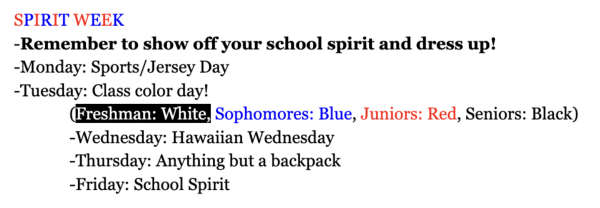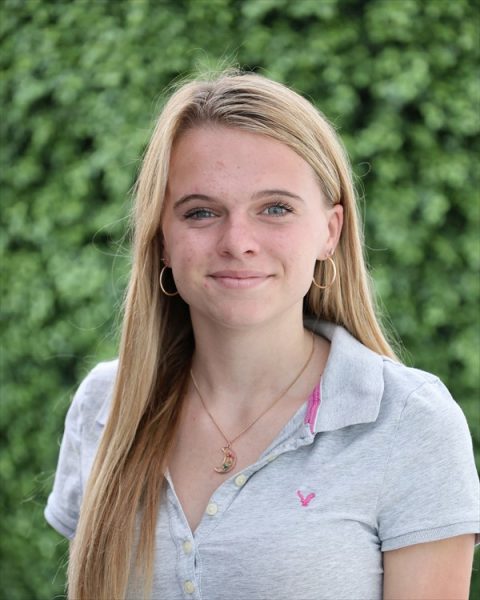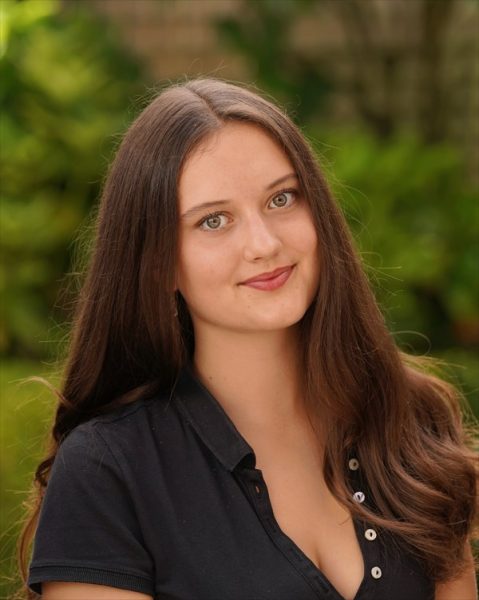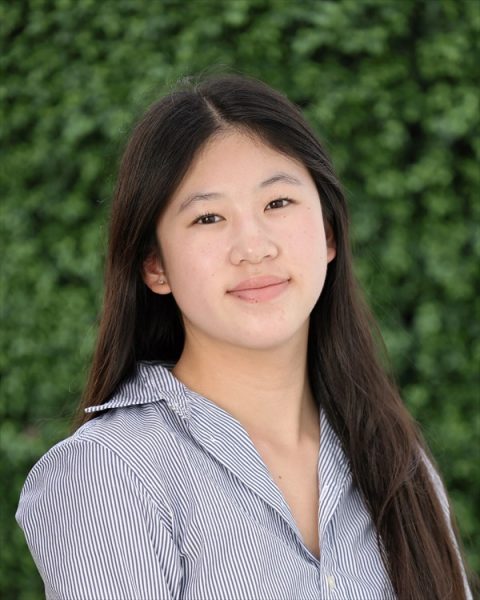Brady retires after 28 years
May 21, 2009
Sara Kloepfer
Reporter
He sits at a corner table in the Center, folded hands resting on his crossed leg, his head cocked slightly and bushy white eyebrows raised as he listens to a student read her poetry. When she finishes, creative writing teacher Charles Brady surveys his four students’ reactions, then proceeds to praise the student’s work, ending with suggestions for improvement.
Brady is retiring, saying, “It was just time.”
“I’ve had three careers,” said Brady. “My wife is a teacher, too, and we need to retire now and do other things. We will both keep writing — my wife is a playwright — and we expect to keep active and possibly travel.”
Brady has already been around the world, while in the Army for 22 years, serving in a variety of jobs and earning the rank of lieutenant colonel. During his service Brady was stationed in Korea, Japan, Germany, Vietnam, and in several locations in the United States. It was in the service that he discovered his passion for teaching.
“Before I retired from the Army, I completed teaching courses at the Montgomery Institute of International Studies,” said Brady, who earned his M.A. in English and Creative Writing. “I had never taught young people until CSH.”
After working as principal for six years at St. Anthony Zuni Indian School in New Mexico, Brady and his wife moved to San Francisco and he began his 28-year teaching career at CSH. Brady’s initial early morning class expanded over the years to include classes during lunch in addition to the school day.
“In class we work from the individual talents of each student, and we cover the essentials of good writing, creative writing as an art, and how creative writing provides an opportunity for true self expression,” said Brady.
Brady’s inspiration as a teacher comes from a high school teacher with whom he keeps correspondence at her retirement home.
“She gave me a 10-year education in English in one year,” said Brady.
Brady counts Emily Dickinson and Walt Whitman as his favorite poets, and credits his youth growing up in Georgia as a focal point in his poetry.
“I have drawn inspiration from Southern writers because they have a particular point of view that emphasizes place in writing,” said Brady.
Brady has published four poetry books, and a second edition of his first book, The Rice Burrow Poems: A Book of Place, is scheduled to be released.
“In that book, I focus on capturing a little piece of my first 18 years — the times, my people, my family, Southern Georgia farms of the 30s and 40s,” said Brady. His other books are combinations of various poems, most of the last two books focused on his teaching experiences. Brady says he plans to publish more books.
“I keep writing and writing, and when there’s enough poems for a collection I put them together,” said Brady.
Brady’s other passion is playing the banjo. He is part of a bluegrass band that is comprised of physics teacher Charles Rooney, computer teacher Rachel Kirkbride, and Allison Faison, who works in Student Services.
“Ten years ago, I decided to learn to play the banjo, and the next day my wife had bought me a book, a banjo and five lessons, so there was no backing out,” said Brady.
Brady’s legacy at CSH will be carried out at the annual Charles Brady Poetry Festival held by CSH and SHHS. The festival was created in an effort to revive the discontinued all-city poetry festival formerly held at Lick Wilmerding High School.
“The idea was started by Ann Cromey, who is the former English department chair, and Karen Randall and I, along with the other English teachers at the time,” said Brady. “They decided the name without me present.”
When asked whether he will continue to attend after his retirement, Brady, laughing, answers, “If I’m invited back.”
“It can go on without me, it’s well established now,” said Brady. “The students, the faculty and the school leadership, all the heads and administration, support it.”
One such supporter is English teacher Theresa Padden.
“When we have the Poetry Festival, it not only honors our poets, but the craft of poetry, and that’s something he’s endeavored to keep alive at this school for decades, which I think is extraordinary,” said Padden.
According to Padden, Brady leaves poems for teachers at least twice a week, with the topics ranging from random thoughts to topics they are discussing in English.
“I’ve been teaching for about five years, so for me as a fairly new teacher, to have someone like him as a mentor is invaluable,” said Padden.
Brady accounts much of his success to the support he has received while at CSH.
“[CSH] is just a wonderful a place to work,” said Brady. “I will miss working for really good people, especially Mr. Grant and Mrs. Curran, who were here when I first got here. Mr. Grant has been really supportive of the arts, especially creative writing.”
Brady also finds support in his students.
“Over the years, the students realize how special the school is, that they have a special deal here,” said Brady. “They are the ones that make the school.”
Padden says one of her favorite characteristics of Brady is his love for his students.
“He just wants you to find your voice,” said Padden. “As a poet, that’s what you need: someone to validate your voice. It inspires young poets to continue to write.”
Padden sites junior Alexa Collins as a prime example of Mr. Brady’s teaching prowess.
“If you look at the improvement in her poetry from then to now, it’s all through his guiding hand,” said Padden. “Her poetry is just so lovely and reflective.”
Collins says the open environment in Brady’s class helps develop her poetry.
“He fosters a warm and welcoming environment so that I can experiment with my writing, and when I find something that works it is always just a great feeling and my whole class supports me,” said Collins.
Junior Stepy Bittlingmeier joined creative writing late this year due to Brady’s encouragement.
“Even if you don’t like your poems, he likes them just because you took the time to do it,” said Bittlingmeier. “He appreciates the effort.”
Brady’s leadership among writers at CSH is part of the legacy he leaves behind.
“He is the heart of the school, the creative center, and he grounds us all,” said Padden. “I just can’t imagine him not being here and not getting my hug every morning.”










Bea siegel • May 2, 2012 at 4:01 pm
Still haven’t been able to access your poems on Facebook. what do I have to ask for?
Bea siegel • May 2, 2012 at 4:00 pm
Charles,
Still haven’t been able to access your poetry on Face book. What do I have to do?
Bea
Allison Brady • Jul 7, 2011 at 10:48 am
Hello John,
Not sure if you have already received a contact for Mr. Brady, but he actually happens to be my Grandfather! 🙂
I’m not sure what his email address is at this time, but he is on Facebook ..and he responds to all messages! Look him up, Charles Brady. If you need any other info, please feel free to email me.
Have a great day!
-Alli
John Darsey • Feb 7, 2011 at 8:42 am
We think Charles Brady was the one who wrote a very nice letter to the editor regarding my Aunt Faye Darsey who was an English and Literature teacher in Hinesville, Ga. She passed away a few weeks ago. We note in this article that Mr. Brady says that his inspiration as a teacher came from his high school teacher who he continues to correspond with at her retirement home. “She gave me a 10-year education in English in one year,” said Brady. We think that teacher was our aunt who received similar comments from many former students. If possible would you please have him send me his email or phone number so we can call and thank him for his comments? It would be appreciated.
Or, he can call my sister at [number deleted for privacy].
Thank you,
John Darsey